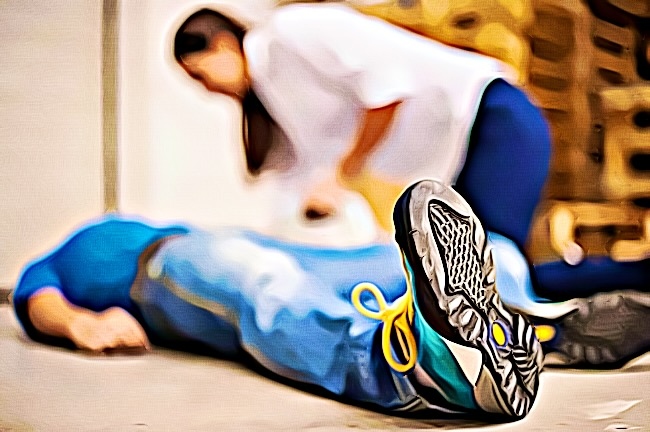The mind is a wonderful thing—it allows for creativity, creates a vast world of emotions, stores decades worth of memories, making humans the most intelligent animals on the planet. However, although our brains are among the most important organs in our body, some people have fallen victim to their thoughts, crafting a mental prison they can’t escape from.
Life isn’t always bleak, but it isn’t full of rainbows either. Everyone has good and bad days, but some have longer and worse days than the average person. For people who can’t seem to turn over a new leaf, overcome their difficulties, or forget about everything for a while, drugs provide a way out, albeit just for a moment.
There isn’t a switch in your brain that alters your perception, thoughts, or feelings, but some have found that LSD does a good enough job of helping someone disassociate from reality.
Is It Possible to Overdose on Acid?
While the symptoms of a bad trip are unpleasant, they usually don’t require medical intervention. Unlike an overdose, you will eventually overcome the effects of a bad trip without seeking a doctor or medical professional.
You can overdose on LSD, but first, it’s crucial to understand the difference between overdosing and a bad trip. Negative hallucinogenic experiences are associated with taking higher doses of LSD, but this is different from experiencing an overdose, which pertains to taking more than the recommended amount of a drug.
How Much Acid Is Too Much?
Since LSD is not like heroin, Xanax, or alcohol, there is no known lethal dose that could result in an overdose. However, LSD can still result in accidents, self-mutilation, suicide, and other dose-dependent dangers.
While overdosing on LSD is rare, and there is no known lethal dose, research by David Nichols and Charles Grob suggests that a dose ranging from 50 to 200 micrograms is safe. Although there is only some possibility of an overdose when you take more than 200 micrograms of LSD, it’s better to avoid taking the drug altogether.
The experience of a good trip may sound tempting, but attempting to have a good trip may lead to a dangerous situation you can never come back to.
The Signs of an Acid Overdose
An LSD overdose is very rare, but it does happen to some people. Since acid is a very unpredictable drug, it can be challenging to determine whether someone is overdosing. Listing down the common signs of an acid overdose is tricky because there are very few reports of people overdosing on LSD.
However, if you experience the following symptoms below, then we recommend calling for emergency medical help right away:
- Seizures
- Trouble breathing
- Fever
- Frequent vomiting
- Suicidal thoughts or behaviors
- Uncontrollable bowel movements
- Symptoms of psychosis

Delving Into LSD
LSD (lysergic acid diethylamide), also known as acid, is an illegal street drug. Available in capsule, powder, and liquid form, LSD affects the action of serotonin, the brain chemical that controls behavior, mood, thinking, and senses. When you take this psychoactive drug, you’ll experience a change in your behavior, attitude, and how you relate to the world.
Acid is a powerful hallucinogen, so the tiniest amount is all you need to feel its effects. Depending on how your brain reacts to the acid or how much of it you take, you may either have a good or bad hallucinogenic experience, more often referred to as “trips.”
Characteristics of a Good Trip
A good trip is pleasurable. You can end up feeling as if you’re floating, entirely disconnected from the real world. The experience also leads one to feel a rush of euphoria and less inhibition, similar to the effects of alcohol. During a good trip, fear is thrown out of the window—you may feel that you have a clear state of mind and even have superhuman abilities.
Characteristics of a Bad Trip
On the other hand, a bad trip places you down a dark path that could even frighten you beyond your senses. During this kind of hallucinogenic experience, you may think scary thoughts or experience several emotions at once.
Instead of a clear state of mind, your senses may become distorted, so you can’t distinguish the actual shapes and sizes of objects around you. If you’ve had suicidal thoughts or have entertained the idea of harming someone, you may not be able to control them while on a bad trip.
Although the criminalization of a drug doesn’t necessarily pertain to something terrible, seeing as how beneficial weed is to the health of many Americans, you shouldn’t ignore the risk of taking acid. With the threat of overdose, it’s advisable to think twice before taking this psychoactive drug.
How Long Does an Acid Trip Last?
One of the reasons why people prefer to take LSD is its lasting effects. An acid trip can feel like an eternity compared to a weed high that lasts for less than six hours. Although most LSD doses are small, with an average of 100 micrograms, an acid trip goes on or more than a day. As such, those who take LSD are usually out of it until the next day.
Once you consume LSD, you may feel its effects only 60 to 90 minutes after ingestion. While the drug takes effect in less than two hours, an acid trip takes much longer, usually around 6 to 15 hours.
LSD’s psychedelic longevity has been a subject of interest of various researchers and a unique selling point for drug dealers. The long-lasting effects of acid have long been a mystery, but postdoctoral researchers Daniel Wacker, Ph.D., and Sheng Wang, Ph.D., found the answer to this mystery.
The researchers discovered that the LSD molecule wedges itself into the serotonin receptor’s binding pocket at an angle. Since the serotonin receptor folds over the LSD molecule, it seals the drug inside, which explains why it takes a significant amount of time for the drug’s effects to disappear.
The Side Effects of LSD
Rather than experiencing an overdose, you may only be having a bad acid trip. From terrifying hallucinations to suicidal thoughts, you could experience less than pleasant things while LSD is absorbed by your body and alters your mind. The effects you may have while on an acid trip include:
- Delusions;
- Dry mouth;
- Alienation;
- Sensory enhancement;
- Tremors;
- Anxiety;
- Impaired depth perception;
- Panic Attacks;
- Synesthesia;
Just because LSD isn’t considered to have addictive properties doesn’t mean that you can take as many doses of aid as you want. Although the risk of overdose is relatively low compared to other kinds of drugs, it’s still a concern that you should be worried about. Rather than the overdose itself, the real danger to watch out for while taking LSD is the accidents you may get into while in an unstable state of mind.
Conclusion
Everyone has the urge to escape from their life sometimes, but the challenges you’re facing don’t give you an excuse to try taking acid or other illegal drugs. Just because the cases of an acid overdose are few and far between doesn’t mean that it won’t happen to you. LSD is too unpredictable for comfort—trying to have a good trip isn’t worth the risk of losing your life.
Source: https://nida.nih.gov/research-topics/psychedelic-dissociative-drugs#what-are

